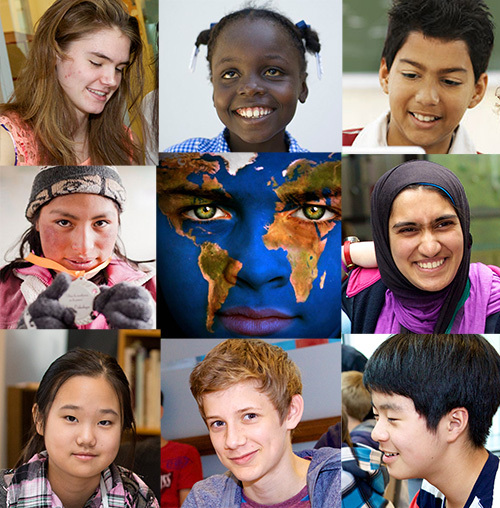
Curriculum 2030 – Changing education to achieve the UN’s Global Goals, was the title of Education Fast Forward’s (EFF) 15th Live Global Debate, chaired by EFF Fellow Gavin Dykes.
Education systems have primarily focused on academic attainment that is important and relatively easy to measure. The UN’s 17 Sustainable Development Goals for 2030, with their focus on People, Planet, Prosperity, Peace and Partnership, will depend on education to develop new curricula and competencies to achieve them (the 4th goal is an explicit goal for education). Many believe the new competencies needed to tackle the global issues will be harder to measure. Will education systems be ready, willing and able to make the changes needed?
Today in The Global Search for Education, I am joined by debate speakers Rebecca Ingram and Alexa Joyce. Rebecca Ingram is Senior Schools Advisor (International Development) at the British Council. Rebecca has worked across programmes in Sub-Saharan Africa and South Asia. Alexa Joyce is Worldwide Director of Policy, Teaching and Learning at Microsoft. In this role, she supports national and regional governments and other education bodies in transforming education.
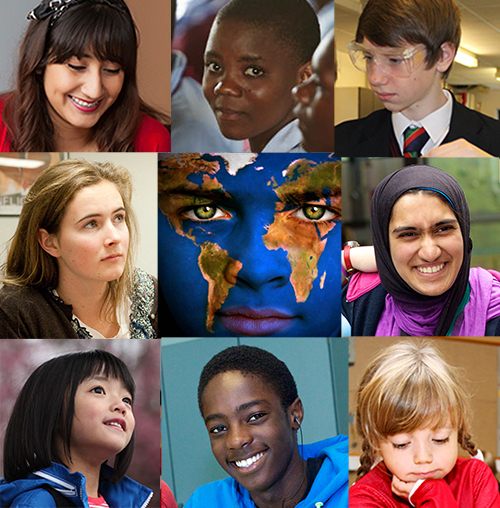
Ladies welcome! The SDG’s were designed as a framework. There is clearly a role for education at a time we are experiencing an “education renaissance”. Do you believe the SDG’s will speed up the “education renaissance”?
Alexa: I think the SDGs are definitely a great catalyst for education transformation. The previous EFA goals and MDGs concentrated policy and business minds. The SDGs have raised our ambition globally to tackle educational challenges, and give a clear set of targets that we can work together to achieve.
Rebecca: It is certainly a time of very rapid change. New technologies are offering more opportunities for democratic engagement with education content and more people are online and able to exchange ideas and content than ever before.
The SDGs are, in themselves, unlikely to speed up the “renaissance”. There are 13 education targets across 4 SDGs – as well as the Education SDG, there are education targets under health, work and climate change. The three means of implementation under SDG 4 are focused on education facilities, scholarships and teacher provision: all important, but not particularly innovative and catalytic in themselves.
There are also a huge number of children who still do not have access to this ‘renaissance’: 110 million people in Nigeria do not have any access to the internet. Basic literacy and numeracy levels for many prevent them accessing any of this knowledge or developing their skills. 25 million children are not in school in Pakistan – and even among those who are, 25% of grade 5 students are unable to read a sentence or a simple story. These children are being left behind. It is right that the SDGs continue to provide focus to the unfinished MDG of universal access with a new focus on quality, and also look at early childhood, where we know the gap begins to open between richer and poorer children. Speeding up can’t happen without closing the gap, and we can’t assume the effects will trickle down.
The SDGs represent a formal influence on education globally – the setting of goals and targets can be very important, especially for campaigning work that needs a simple, communicable goal to coalesce around. As the focus for implementation and the responsibility lies at country level, it is difficult to see how catalytic the process can be at an international level. What it does do, however, is set the broader environment within which we can develop country-led processes that respond to an unknown future, and may well influence the funding policies of OECD-DAC countries who can seek to encourage innovation at the same time as getting the basics in place.
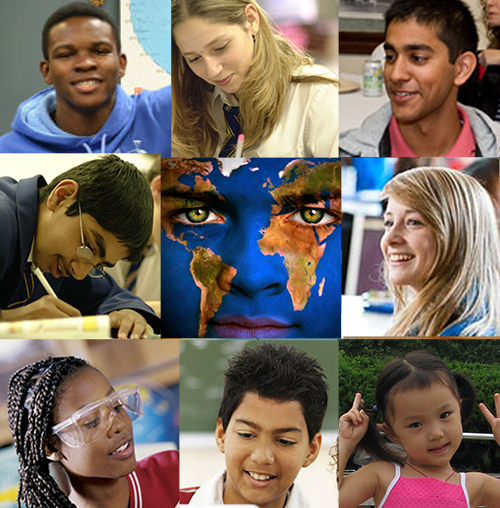
What are the most crucial needs for education leading up to 2030? How will technology help?
Alexa: One of the most critical needs in the education system is to improve quality via curricular reform and integration of innovative teaching practices, to create an educational environment which offers lifelong learning for all. From the perspective of Microsoft, the major challenge which Ministries of Education invite us to tackle with them is how to ensure that investments in ICT infrastructure and training can help to address equity, improve quality of education and enable the development of skills which will help young people and adults find rewarding employment on graduation from school or university. Technology can help by improving access to education and training – for instance reaching students in remote locations or embedded during their working day – but also by enabling more collaborative teaching methods that promote team work and problem solving. Technology however must be implemented in a careful way, avoiding parachuting in solutions without proper stakeholder engagement, to reap the benefits of the investment of time and resources that it requires.
Rebecca: The most critical thing is financing. There is a $39 billion funding gap to achieve universal pre-primary, primary and secondary education of good quality in low and lower middle income countries. This doesn’t include the financing needed to meet the vocational education, higher education and adult literacy targets. Without this financing we will not make the desired progress.
What are the important steps global educators should take to ensure they are constructing a curriculum which prepares their students for the future?
Rebecca: Educators have a responsibility to prepare children for their future in the best possible way. Just preparing them for qualifications won’t be enough. We know that young people need the opportunity to grow into well rounded and creative and critical citizens able to shape themselves for the future.
What this looks like in different contexts will be different, and educators are best placed to make informed decisions about how they can best provide for their pupils. The danger – if we focus too much on curriculum construction – is that change will outpace this. Curriculum reform processes are not usually that frequent. The most effective approach will be to support teachers, leaders and ministries to make those decisions for themselves and this will enable them to adapt and flex as innovations come on stream, new labour markets develop and political priorities shift.
Alexa: When we look at the key skills that are in growing demand in future work life, but also needed to address societal challenges in the future, we can see that higher order skills are going to be needed. This means problem-solving, creativity, entrepreneurship and collaboration. Scientific and technical competence – including computational thinking – also continues to be an area where we need to prepare students more effectively. Sustainability as a theme also needs to run throughout approaches. Curricula need to take this into account, and focus on stimulating student enquiry, empowering students to take charge of their own learning.
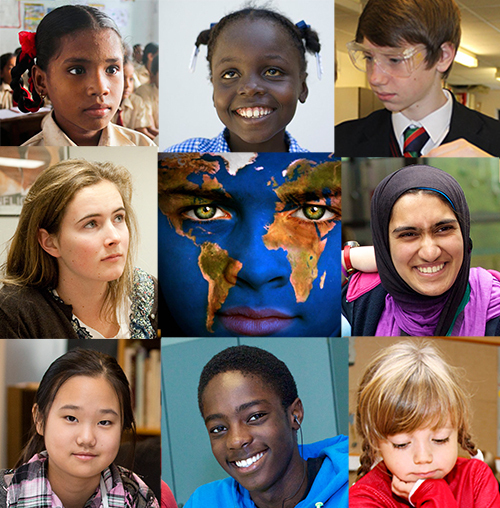
What top 5 strategies would you recommend to parents to help them ensure their children develop the key competencies they need in life?
Rebecca: Parents are children’s first, and most important, educators. They play a very important role in both nurturing aspirations and in terms of practical and financial support. Education systems globally are rapidly decentralising and with this comes the anticipation that parents will have a role in governance and decision-making. We also know that educational outcomes for children tend to be better when there is parental involvement, but that this is constrained by all sorts of factors related to poverty, social inclusion, literacy and policy constraints.
Most parents, where they are in a position to, do everything they can to support children’s learning. One way of ensuring that competencies are relevant and that parents are able to work collaboratively with schools is to ensure the broader policy environment provides an opportunity for parents to be engaged in decision-making. Schools can also work to engage parents directly in terms of increasing outreach activities and helping to share pedagogies and approaches to support development of competencies.
Alexa: Right now there is lots of excitement around the Hour of Code. We have some incredible Minecraft based tutorials on learning computational thinking which I know parents and their children are really enjoying. Parents need to be open and supportive of a range of interests of their children. For instance, many parents are worried about computer games – but when we look at what students do in games like Minecraft, it’s actually stimulating a lot of creativity and learning. I think also as parents, we have a responsibility to support schools in integrating key competencies more effectively – whether it’s participating as role models face to face or virtually using Skype – to show how what we learn at school can be used in real life in jobs.

(Photo montages are courtesy of G. R. Rubin)
Join me and globally renowned thought leaders including Sir Michael Barber (UK), Dr. Michael Block (U.S.), Dr. Leon Botstein (U.S.), Professor Clay Christensen (U.S.), Dr. Linda Darling-Hammond (U.S.), Dr. MadhavChavan (India), Professor Michael Fullan (Canada), Professor Howard Gardner (U.S.), Professor Andy Hargreaves (U.S.), Professor Yvonne Hellman (The Netherlands), Professor Kristin Helstad (Norway), Jean Hendrickson (U.S.), Professor Rose Hipkins (New Zealand), Professor Cornelia Hoogland (Canada), Honourable Jeff Johnson (Canada), Mme. Chantal Kaufmann (Belgium), Dr. EijaKauppinen (Finland), State Secretary TapioKosunen (Finland), Professor Dominique Lafontaine (Belgium), Professor Hugh Lauder (UK), Lord Ken Macdonald (UK), Professor Geoff Masters (Australia), Professor Barry McGaw (Australia), Shiv Nadar (India), Professor R. Natarajan (India), Dr. Pak Tee Ng (Singapore), Dr. Denise Pope (US), Sridhar Rajagopalan (India), Dr. Diane Ravitch (U.S.), Richard Wilson Riley (U.S.), Sir Ken Robinson (UK), Professor Pasi Sahlberg (Finland), Professor Manabu Sato (Japan), Andreas Schleicher (PISA, OECD), Dr. Anthony Seldon (UK), Dr. David Shaffer (U.S.), Dr. Kirsten Sivesind (Norway), Chancellor Stephen Spahn (U.S.), Yves Theze (LyceeFrancais U.S.), Professor Charles Ungerleider (Canada), Professor Tony Wagner (U.S.), Sir David Watson (UK), Professor Dylan Wiliam (UK), Dr. Mark Wormald (UK), Professor Theo Wubbels (The Netherlands), Professor Michael Young (UK), and Professor Minxuan Zhang (China) as they explore the big picture education questions that all nations face today.
The Global Search for Education Community Page
C. M. Rubin is the author of two widely read online series for which she received a 2011 Upton Sinclair award, “The Global Search for Education” and “How Will We Read?” She is also the author of three bestselling books, including The Real Alice in Wonderland, is the publisher of CMRubinWorld, and is a Disruptor Foundation Fellow.




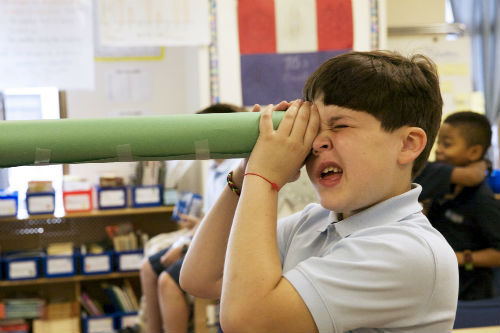
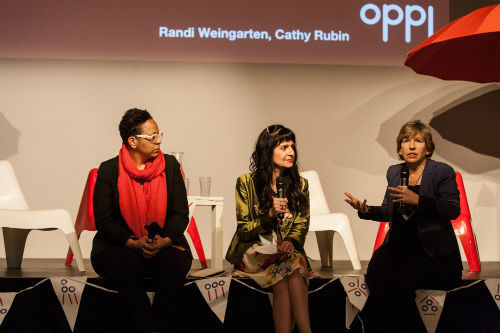
Recent Comments